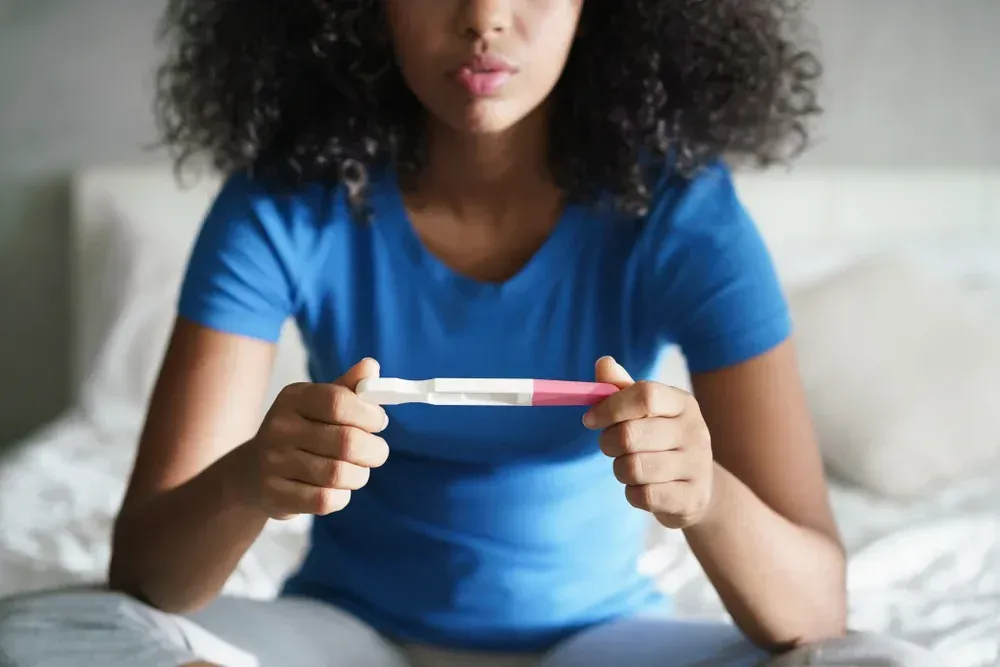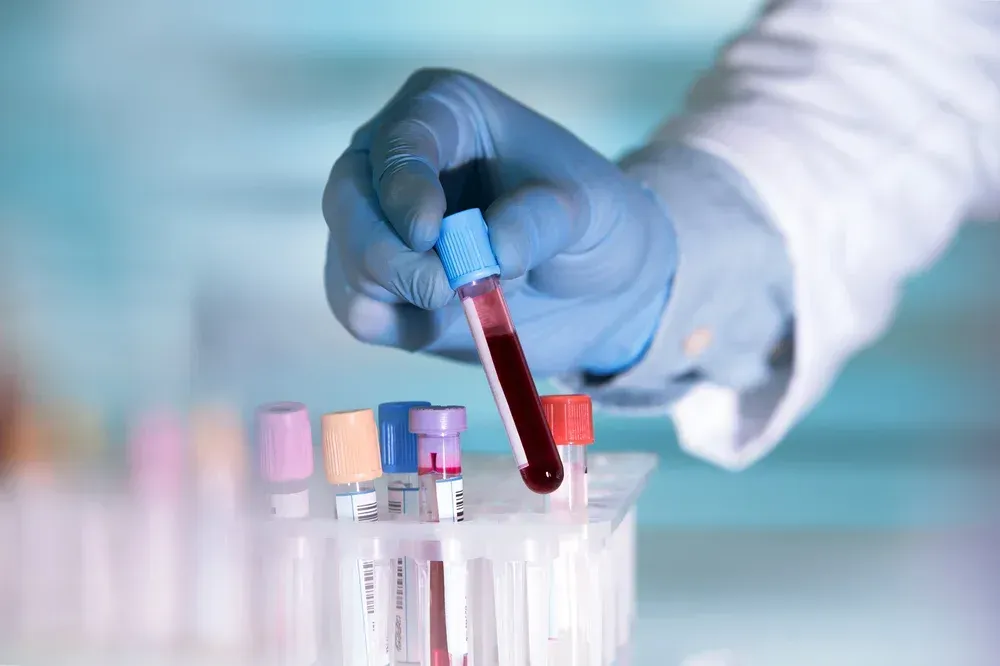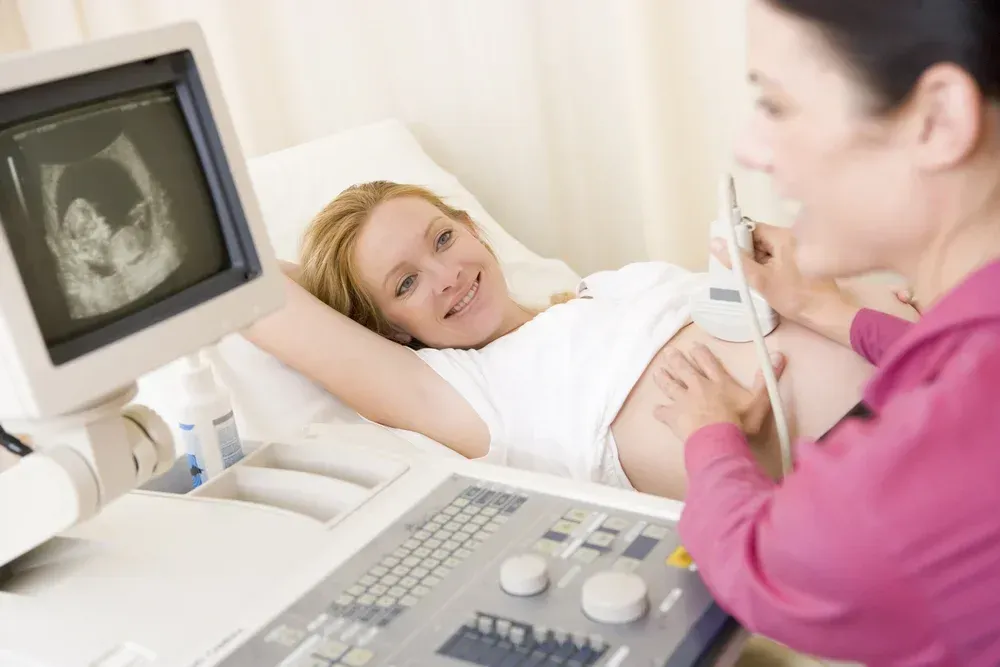Blood vs Urine Pregnancy Test: What’s the Difference?
Share this Article:

There are two common kinds of tests to detect pregnancy: blood tests and urine tests. Let’s explore the difference between the two.
Understanding How Pregnancy Tests Work
In order to understand how pregnancy tests work, it is important to understand what happens in your body when you become pregnant. About two weeks after the first day of your last period, a mature egg is released from your ovary. If you have unprotected sex within 24 hours of ovulation and a sperm reaches the egg, conception occurs. Six to 11 days later, the fertilized egg implants in the endometrium, or the lining of your uterus. About six days after that, or around the day you would expect your next period to begin, your body begins to produce the hormone hCG, or human chorionic gonadotropin, and releases it into both your blood and urine. This hormone is important as it stimulates the production of progesterone, which is necessary to sustain a pregnancy.
Pregnancy tests work by detecting the presence of hCG in your blood or urine.
Differences Between Blood and Urine Pregnancy Tests
Blood and urine pregnancy tests have both similarities and differences. Below, we will discuss those similarities and differences.
Purpose
Both blood and urine pregnancy tests are used to detect pregnancy. However, because blood tests can measure the amount of hCG present in the bloodstream, they can also be used to determine gestational age, monitor for fetal loss, detect a possible ectopic pregnancy, and diagnose other medical conditions that cause hCG production.
Administration
Blood pregnancy tests require venipuncture – or inserting a needle into a vein to draw blood – which may be accompanied by slight pain or discomfort. Urine pregnancy tests are not uncomfortable; you will simply collect a small amount of urine in a cup or on a stick according to the instructions provided by your healthcare provider or the at-home test you have selected.
While blood tests must be ordered and administered by a medical provider and tested in a lab, urine tests can be ordered by a medical provider and tested in a lab or purchased over the counter and self-administered at home.

Cost
Tests administered at your provider’s office are more expensive than over-the-counter tests. The most affordable pregnancy test is one you can purchase over the counter and administered yourself. If you do elect to go to the doctor, urine pregnancy tests are more affordable than blood pregnancy tests. Pregnancy options clinics like Willow Womens Center usually offer free testing.
Results
It may take longer to get the results from a blood test than it does to receive results from an over-the-counter or urine pregnancy test. In most cases, you will have the results from a urine pregnancy test within a few minutes.
Accuracy of Blood vs Urine Pregnancy Tests
Although comfort, convenience, and affordability are all advantages of at-home urine tests, blood tests are sometimes used because they provide earlier results, improved accuracy when testing before your missed period, and more detailed quantitative information. This kind of information can be helpful for women who are facing high-risk pregnancies, who need treatment to sustain a pregnancy, or who suspect they may be experiencing a miscarriage. It can also be helpful for providers working to diagnose other medical conditions that involve hCG production.
In the vast majority of cases, a urine pregnancy test is recommended. Urine pregnancy tests are most accurate on or after the day you miss your period. Accuracy increases substantially with each day after a missed period due to the increase in hCG levels that occurs at that point in the pregnancy. Taking a urine pregnancy test right away in the morning when your urine is most concentrated can also help improve accuracy.
Blood tests can detect hCG almost as soon as you begin producing it; just 6-8 days after ovulation or around a week before your missed period.
When to Take a Blood or Urine Pregnancy Test

Women who are trying to conceive may choose to take a pregnancy test before they experience any signs or symptoms of pregnancy. In this case, a blood pregnancy test can be taken about a week after ovulation (or three weeks after the first day of your last period if you have a 28-day cycle) and a urine pregnancy test can be taken the day of or the day after your missed period.
In other cases, pregnancy is not planned and symptoms lead to suspicions and testing. If you are experiencing any of the following symptoms after birth control failure or unprotected sex, consider taking a pregnancy test or scheduling a free test at Willow Womens Center:
- Sensitive, sore breasts. Hormonal changes related to pregnancy often lead to breast soreness and discomfort in the first few weeks of pregnancy.
- A missed period. If you normally have regular periods and you didn’t get it when you expected to, it’s an indication that you may be pregnant.
- Exhaustion. While causes are unknown, early pregnancy often leads to fatigue and exhaustion, making it a common sign of pregnancy.
- Nausea. While it’s often called ‘morning sickness,’ nausea that accompanies pregnancy can happen at any time of the day and doesn’t have to be accompanied by vomiting.
- Frequent urination. More frequent urination is a sign that your kidneys are processing more fluid than usual – an indication that you might be pregnant.
Other less common signs and symptoms of pregnancy include cramping, mood swings, light spotting, food aversions, and bloating. Many of these symptoms can also accompany your menstrual period, so it is important to take a test to confirm a suspected pregnancy.
The sooner you know about an unexpected pregnancy, the more options you have available to you and the more time you have to learn about the options available to you and make an informed decision. For free pregnancy testing, early ultrasound, pregnancy options counseling, and more, schedule an appointment with the team at Willow Womens Center today.
Connect with Us:












